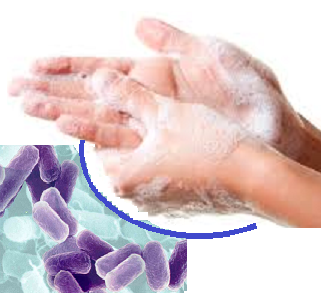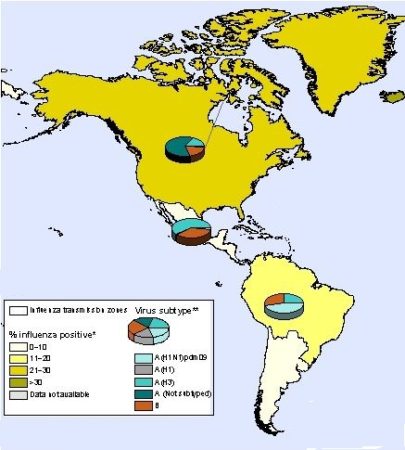Washing Hands – Is It All That It’s Cracked Up To Be?
By Gideon Eden, PhD
 For years we have been told by the scientific community that hand washing is a key factor in preventing disease. Since childhood, we have been educated by our parents to wash our hands whenever we may be exposed to microorganisms. We regularly wash our hands before meals, after touching dirty surfaces, after petting animals, and of course after touching sick individuals. Nowadays microbiologists and physicians are regularly appearing in the media to educate the public about the importance of hand washing for the prevention of foodborne and airborne diseases.
For years we have been told by the scientific community that hand washing is a key factor in preventing disease. Since childhood, we have been educated by our parents to wash our hands whenever we may be exposed to microorganisms. We regularly wash our hands before meals, after touching dirty surfaces, after petting animals, and of course after touching sick individuals. Nowadays microbiologists and physicians are regularly appearing in the media to educate the public about the importance of hand washing for the prevention of foodborne and airborne diseases.
While the arguments for hands washing do make sense, especially after considering the enormous scientific knowledge and accumulated data about diseases, it is still not clear that these precautions are definitely helping in actually preventing their spread. As time goes by it seems that the situation is getting worse rather than improving and that there is no significant correlation between hand washing and improved health.
The author is not a denier of the scientific evidence about the role of microorganisms in causing illnesses and the significant progress made in food safety and medicine to prevent the causes and consequences of diseases. There is no suggestion that physicians, surgeons, and food manufacturers and preparers should not practice the highest level of hygiene. Nevertheless, the author wishes to raise an issue regarding the role of the personal immune system in preventing diseases and ask WHETHER EXCESSIVE HAND WASHING FOR YEARS CAN POTENTIALLY INHIBIT THE IMMUNE SYSTEM FROM DEVELOPING ITS OWN NATURAL PROTECTION MECHANISMS, THEREBY BECOMING A CONTRIBUTOR OF ILLNESS RATHER THAN ITS PROTECTOR.
There are many anecdotal stories to support the above presumption, and I am sure you can find a few relating to your own experience. This, of course, does not prove this theory, which I personally hope will be corroborated through scientific research providing statistical comparisons of the long-term outcomes of frequent washing vs. moderate washing or even minimal hand washing. Comparison of national habits of different nations and populations can also shed light on the answer.
As for myself and my personal experience, I am an Israeli baby-boomer born immediately after World War II. Although the new nation accepted immigrants from several countries who had comprehensive hygiene practices, it was still difficult for the parents to instill them in the new rebellious generation. Eating street food was a common practice for years, disregarding hand washing (due to a lack of facilities), and eating food that was placed in the open in temporary stands and exposed to the elements (mainly the hot middle eastern sun) for hours. Vegetable salads, various dressings, previously fried falafel balls, and partially boiled corn kernels provided a part of the new generation’s diet, that included large portions of microorganisms. To complete the “horrific” picture, people drank soda-based beverages from stands (kiosks) that had ineffective glass washing devices squirting symbolic amount of tap water without any detergent. The same drinking glass would touch the lips of numerous people over the course of a full day before they were properly washed, if at all.
Today, I live in the US and like to travel overseas from time to time. Unlike many Americans, I (and my Israeli born wife) am less sensitive to food poisoning while traveling. In my several trips to Mexico, I drank tap water and ate regular Mexican food in native restaurants, not ones specially catering to tourists. I even dared to eat Mexican street food, mainly (unwashed) handmade tacos. I was pleasantly surprised that my immune system did not “forget” the abuse and exposure from the 1940s and 1950s. It seems though that gradually I am losing the natural immunity by living in the “sterile” environment of the American society.
 Isn’t it intriguing that the current flu epidemic is very high in California and relatively low in neighboring Mexico (see the chart below)? I do not pretend to know the entire answer, which certainly includes many other factors, but it does raise the question of the significant role of natural immunization.
Isn’t it intriguing that the current flu epidemic is very high in California and relatively low in neighboring Mexico (see the chart below)? I do not pretend to know the entire answer, which certainly includes many other factors, but it does raise the question of the significant role of natural immunization.
Consider that many vaccines developed in the last century included weakened strains of microorganisms, the same organisms that actually cause the diseases, by “training” the immune system to protect against future infections. Why should we deny our immune system from adjusting itself to the dynamic environmental threats during the course of our lifetime?
It should also be noted that should this theory be verified by future scientific evidence, current handwashing practices should not necessarily be instantly abandoned, especially for people who have practiced it vigorously during their entire lifetime, but rather adopt gradual exposure schemes to allow the immune system to take natural control of disease prevention gifted to us by the long human evolution. Bacteria and viruses are going to be with us in the future and with their short generation times, they can rapidly mutate to adapt to their environmental challenges. Are we losing our powerful immunological capabilities when we sanitize our hands before touching a supermarket’s cart? A moderate washing approach may prove to be the appropriate practice in the future, providing basic protection and allowing our natural defenses to continuously develop.
Gideon Eden
